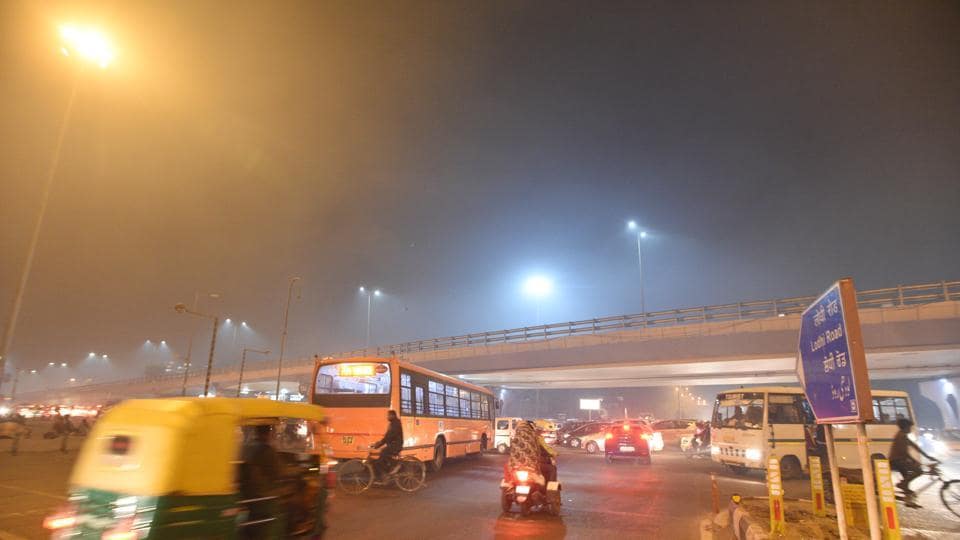
The air quality of Delhi breached the ‘severe’ mark once again on Monday, after a gap of nearly a month.
The air quality index (AQI) of Delhi, as recorded by the Central Pollution Control Board (CPCB), was 403 around 4pm Monday. It worsened to 411 by 7pm Monday. The last time the AQI had entered the severe zone was on November 13, when it was recorded at 460. On a scale of 0 – 500, AQI value between 401 and 500 is considered to be ‘severe’.
The air quality in the NCR towns such as Faridabad, Ghaziabad, Noida and Greater Noida were all in severe category and hovered between 430 and 452. With an AQI of 452, the air quality in Noida was the worst in the country on Monday.
Even though Delhi could receive light rain on Tuesday, experts have warned that inadequate rain would push up moisture level, which in turn could make the air fouler.
According to the CPCB, such high levels of pollution can affect healthy people and seriously impact patients with lung and heart ailments. The multi-agency task force, headed by the CPCB, is likely to meet Tuesday to take stock of the situation.
Health experts in the task force had earlier advised people not to undertake strenuous outdoor activity and cut down on the use of private vehicles, when the AQI is in the severe category.
“The air quality has worsened over the past two days, particularly because of low wind speed and high relative humidity. The air has become heavier and its carrying capacity has increased. Pollutants emitted by local sources are getting trapped in the air,” a CPCB official said.
“Delhi could receive very light rain on Tuesday in some areas. But this could increase the moisture level. We are expecting some fog on Wednesday and Thursday. The visibility could drop to less than 500 metres on these days,” Kuldeep Srivastava, head of the regional weather forecasting centre (RWFC), said.
This, experts say, could worsen the air quality. “Inadequate rain – too little and too sporadic — at this stage could prove to be bad for the national capital. It won’t be able to wash away pollutants. Instead, increase in moisture level would push up pollution, by increasing the holding capacity of the air and making it heavier,” D Saha, former head of the CPCB’s air quality laboratory, said.
On Monday, while the night temperature was recorded at 7.6 degrees Celsius, the maximum was 23.8 degrees Celsius. Both were one degree below normal.
“The cloudy sky will push up the night temperature to around 11 degrees by Wednesday, but the day temperature is expected to drop to 21 degrees and remain there for the next few days.
Meteorologists said while a clear sky helps the night temperature decrease, it pushes up the day temperature. A cloudy sky does the opposite— it makes the day relatively colder and the nights relatively warmer.
“We usually get to feel the chill when the day temperature drops. A dip in the night temperature could be hardly felt as we usually sleep under blankets when the temperature is at its lowest,” a meteorologist of the RWFC said.
First Published: Dec 11, 2018 07:07 IST